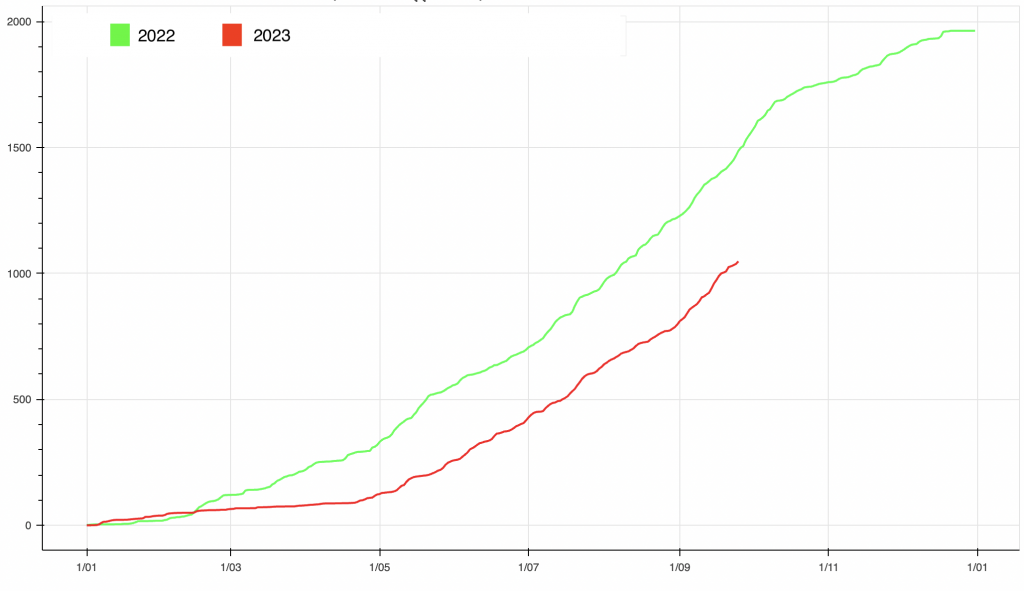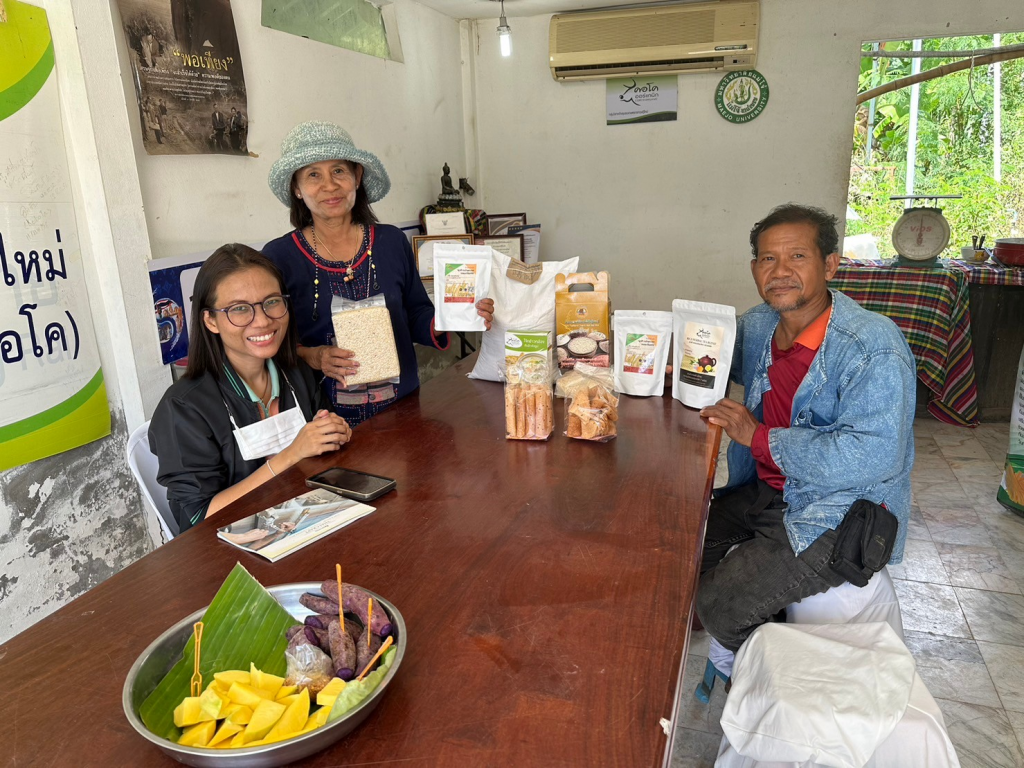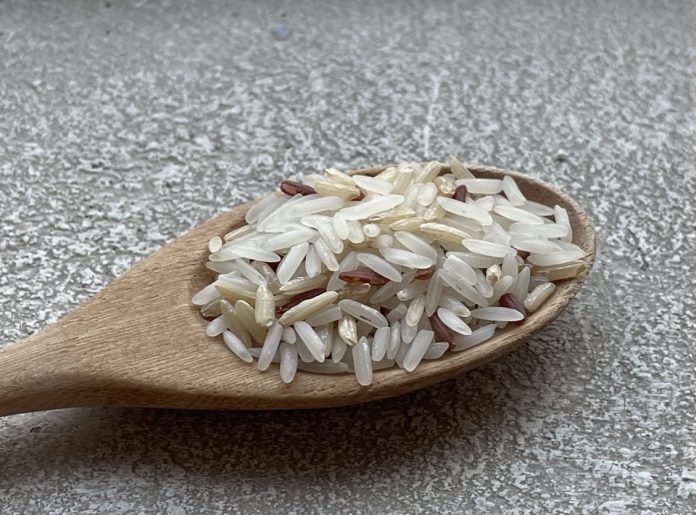Due to drought, Thailand rice farmers have experienced a severe decline in rice production.
By Nutcha Hunsanimitkul
Amphorn Yousuphap suffered a harvest loss due to a severe drought in 2023, which she says is the worst in eight years.
“My rice yield dropped by almost 50%. I used to get 1 tonne of rice per 1 Rai (1,600 square metres), but I only had 0.6 tons this year,” she says.
Yousuphap owns 30 Rai (48,000 square metres) of paddy fields in Nakhon Sawan, 237 kilometres from Bangkok, where most of the areas are lowlands. Agriculture takes up 34% of the city’s GPP (Gross Provincial Product).

“This year was the worst in eight years. I had to give up growing anything on almost half of my farmland because there wasn’t enough water,” the 35-year-old woman says.
“Even though I tried to drill a well, it just didn’t make any difference,” she adds.
Another farmer, Lek Soongchareun, 60, is also affected by the severe drought.
“Over ฿42,000 baht (US $1,159) was lost. I have to plough down the withered rice and spend an additional ฿16,800 baht (US $464) to buy new grains for replanting,” he says.
Due to a lack of rain in early 2023, Soongchareun’s rice farm turned brown and wilted. He had to sow again in late July and waited for another crop to grow as he lost the first batch.
“I have to sell my rice even if it is not mature enough because I have to race against time,” Soongcharuen, who has been growing rice for 40 years, says.
Even though the government supplied water to farmers during the drought, it was insufficient to cover all households in Loburi, which is 151 kilometres from Bangkok, where farming is the primary source of people’s income.
“Some water had to be reserved for domestic use. It was way more challenging than last year,” he says.
In the first half of 2023, only 43.30 millimetres of rainfall were recorded which is 39% less than usual. More than 700 millimetres of annual rainfall were reported in the past two years, according to Thailand’s Office of the National Water Resources.

The Thai Meteorological Department says that El Nino, a weather phenomenon that leads to droughts, caused a 3.2% drop in rice harvests this year.
More than 4.9 million households in Thailand were farming rice and produced over 26.7 tons of rice in 2022, according to the Office of Agricultural Economics. Rice exports also contribute around ฿138,000 million baht (US $3.87 million) to the country, accounting for more than 1% of the national income.
While Thai farmers struggle to cope with the drought and harvest losses, the price of Thai rice has soared after India stopped exporting rice.
“My earnings were roughly the same as last year. Despite the harvest dropping by half, I can sell the rice for ฿11,300 baht (US $312) per ton. The price of rice has almost doubled compared with last year,” Yhusuphraw says.

In late July 2023, India imposed restrictions on grain exports to manage domestic prices and ensure food security, resulting in a global increase in rice prices. The price of white Thai rice also went up by almost 15% to reach US $645 per ton, the highest record in 10 years, according to the Food and Agriculture Association of the United Nations.
Vietnamese rice prices also climbed by 21% after India’s ban, increasing from US $504 per ton to US $614.3 per ton in a single month, while the price of rice from Pakistan shot up by 12% to reach US $579.8 per ton.
Speaking in an interview with THANTALK, a Thai news TV programme, Associate Professor Somporn Isvilanonda of the Department of Agricultural and Resource Economics at Kasetsart University predicts that farmers will face another challenging year as the impact of El Nino is expected to be more significant.
“Although it rained more in Thailand this July and many dams have been refilled, it might not be enough to offset a further delay and severe reduction of rainfall during the next cultivation season,” Isvilanonda says.
“Thai rice productivity in 2024 might shrink to half of this year. Some of the harvested rice should be stored to compensate for the losses this year and stabilise the global rice price,” he says.
Srettha Thavisin took office and formed a new government in Thailand in late August. The administration is still working on its blueprint for handling drought issues and providing financial support for rice farmers.
“We were usually subsidised for harvest losses, but I am not sure about this government. They have not made any announcements yet,” Soongchareun says.
Sub-edited by Kossy Chen







































